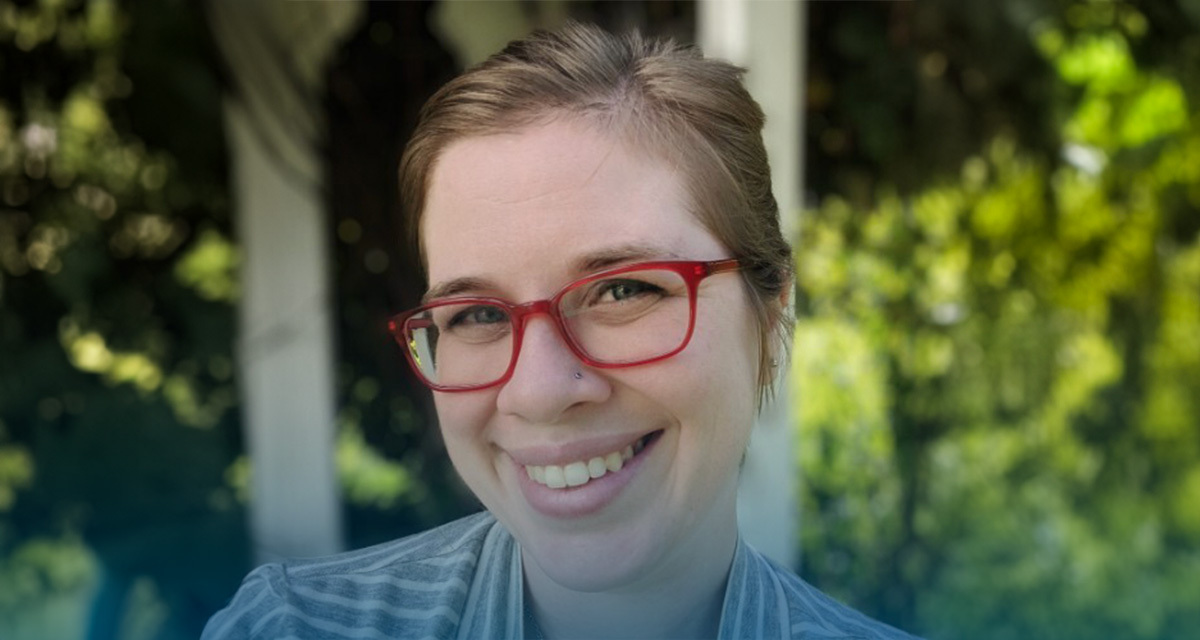A Tech Career Powered by English Skills: Kate Stadt ’11 on her Role at HubSpot
Kate Stadt ’11 studied English at Gordon and is now the manager of legal and compliance enablement at HubSpot after holding several other roles there. HubSpot, a giant in the tech industry, rose to fame with its cloud-based software platform that helps businesses with their inbound content marketing, sales and customer service. We sat down to ask Kate about her journey to the tech world and trends in the industry.
You originally studied English at Gordon and worked as a librarian. What made you decide to switch to tech?
My first love has always been literature. I’m passionate about stories and storytelling, and I think humans really crave and need that. But I also realized I have a strong skill set in information management, helping people find answers to questions and how that information is organized. That led me into the library world on the North Shore, including some time working at Jenks Library, which I truly loved. But then we moved to Boston, and keeping that job wasn’t feasible anymore.
Fortunately, the tech industry really excels at giving people opportunities that don’t necessarily fit within their past career. I had a friend from Gordon who referred me to a basic customer support role at HubSpot, which required a lot of information management; I learned how HubSpot works very quickly! The same thing happened with all my other positions here. I had no idea what compliance was, and I didn’t know anything about the legal world when I started on this team, but my ability to learn new information quickly has helped me excel in all my HubSpot roles.
Practically, what do you do at your job?
My job encompasses internet management, content management, socialization of that content, training, publishing public pages—it’s never the same thing twice! I handle all the information that the legal teams need to produce so they can operate well. So that could be onboarding materials or that could be our internal processes. We also manage the information the legal team needs to convey to the rest of the business. That could be guidance on how to manage particular legal questions or educating people on sensitive legal topics they need to be aware of, like terms and conditions or our stance on AI or how the California Consumer Privacy Act has been superseded by the California Privacy Rights Act or something like that.
What’s a trend in the tech industry right now that people should be aware of?
In the legal world there’s the evolving debate around privacy regulation, especially in the European Union (EU). It’s interesting to see how consumers feel strongly about the need to maintain control over their data and what constraints that puts on the tech industry. Consumers are challenging the idea that just because they’re on the internet anyone can use their data. Consumer privacy is harder in the US because, although we have state consumer privacy laws, we don’t have federal regulation for it. In the EU you can submit a data deletion request form to a company whose website you visited, and they have to delete the data they collected from you.
Internet cookies are an interesting example of this. If you’ve ever gone on a website, you’ll probably get a pop-up box of three options. One of these, “accept all cookies,” could mean that the company can take whatever information they want from you and your session on their site. So that could be things like your IP address or how long you spend looking at a particular page…This is all stuff companies use to figure out how people interact with their product and their site and how to get more engagement. This information] can be used for good things that help consumers, like targeted advertising, e-mail campaigns and more. But it’s not always used for good.
Then there’s the “reject some cookies” option, which is the bare minimum required to basically protect the consumer, and the company will only receive some of your data usage. But these options may change as consumers push for more data protection, and there may be more ways to protect consumers while also helping companies get the information they need.
How did your education at Gordon in English prepare you for your career?
Since my time at Gordon, one thing that’s really benefited me in my career is learning how to synthesize lots of different sources together into a big-picture insight. The tech industry can be very specialized and heavily focused on very specific goals, so being able to zoom back out to the big picture is valuable. My English major also taught me that knowledge is important for knowledge’s sake. If you can be curious about everything and constantly learning new things, it will help you in the tech industry (or any industry!) because you have humility about finding things that will put you in a good position to do work that other people can’t or don’t want to do.
 The Bell
The Bell